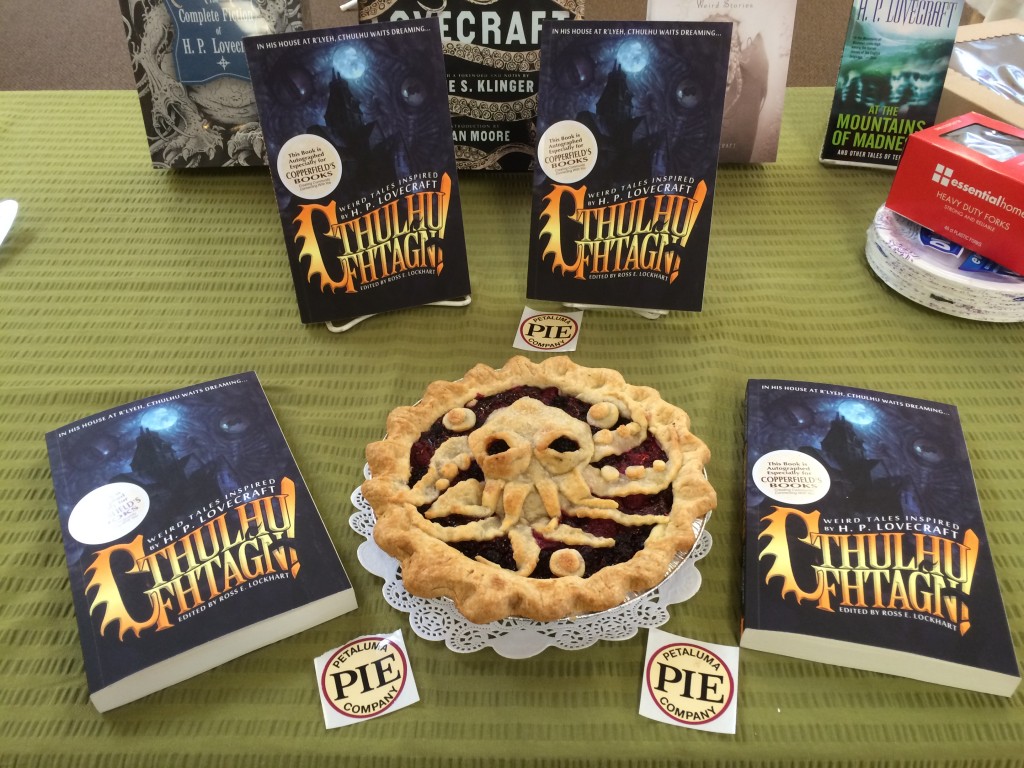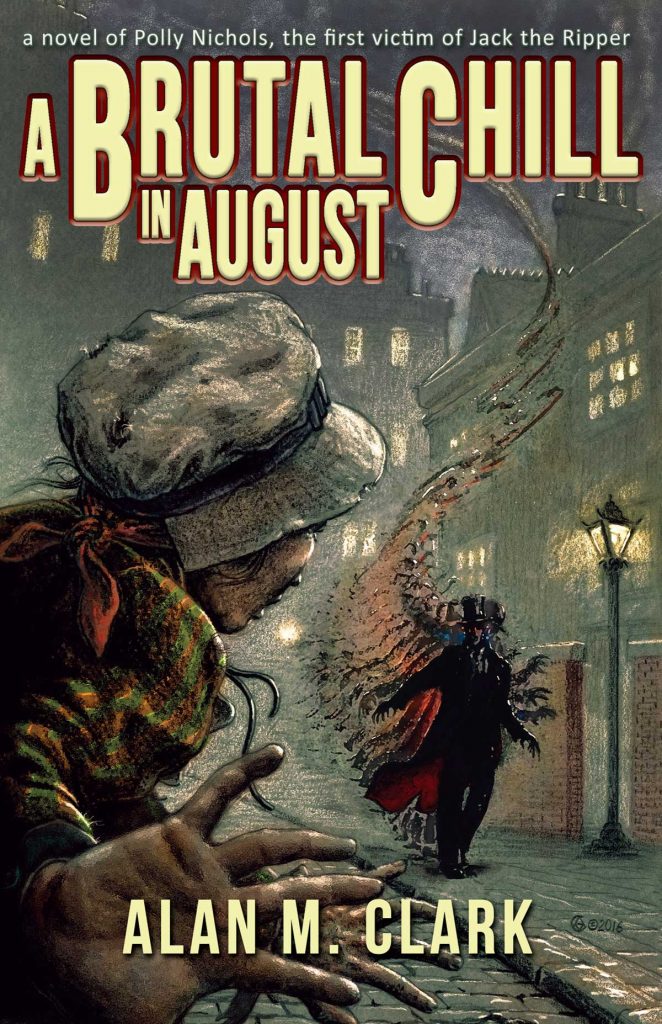
Entering the Workhouse
In Chapter 9, we see that Jack London finally succeeded in entering the Whitechapel workhouse casual ward. He opened the chapter with an apology to his body for what he forced it to endure.
Again, engaging in conversation with the men sharing his predicament, he learned that many knew no better way to get on in the lives they had. The men told stories of their experiences in the various spikes (workhouses), some with happy endings, some with sad ones. They gave a warning of what awaited the infirm within the workhouse infirmary, the “blackjack” or “white potion,” they believed was given to hasten the departure of those who lingered in disease and had become a burden to the relief system. They shared knowledge of those who hated them, those who felt that the human beings who entered the relief system were barely human and deserving of no compassion. Those people frequently saw paupers as society’s pirates, conmen, selfish individuals not willing to do their share in life and who knowingly drag everyone else down. Some of the haters were those who worked within the relief system itself.
A conversation between Elizabeth and John Stride in Say Anything But Your Prayers helps to express some of the feelings. In this scene, Elizabeth is home in the evening after performing her daily labor of oakum picking at the Poplar workhouse for the out relief she and her ill husband are receiving:
In her second week of out relief labor, Elizabeth could not contain her complaints any longer. “I understand the workhouse guardians want the work to be a hardship so only the truly needy seek relief,” she said to John, “but why must they work us until we’re miserable?”
“For fear wages will suffer,” he said, “Parliament doesn’t want relief to compete with labor.”
“Jobs are so hard to come by, wages drop anyway,” Elizabeth said. “There are so many hungry people who’ll die without relief.”
“Some workhouse Guardians have good intentions. At least once a week, though, I read in the newspaper that some crow or another in Parliament is squawking about how those who bear the harsh treatment deserve it because they lack the moral strength to do better. You know that’s the common belief.”
Indeed, he was’t telling Elizabeth anything she didn’t already understand. When she’d worked in the coffee shop, she’d heard plenty of well-dressed people push such ideas about the poor. Most were careful not to sound too heartless. Working with Lettie at laundries and kitchens, she’d noticed the same sort of message was well received and repeated by many laborers who treated the poor as scapegoats, despite the fact that the workers themselves suffered low wages, long hours, and no redress with employers who had little regard for the needs of those they employed.

“Holding Back Tears” copyright©2014 Alan M. Clark. Interior Illustration for JACK THE RIPPER VICTIMS SERIES: SAY ANYTHING BUT YOUR PRAYERS by Alan M. Clark
John shook his head. “As long as people see the poor as mumpers, prigs, and sharpers, employers will do as they please.”
“I’m no thief or con artist!” Elizabeth said. “I don’t go to the workhouse because I’m not willing to do better.”
“I know,” John said, gently reaching to take her dry, cracked hands. “You’re a hard working woman.”
When she’d arrived for the first time in London so long ago, Elizabeth was alarmed by the large crowds and the abundance of activity. She’d thought of the city as a great, hungry beast trying to digest her. At present, she saw the workhouse as the London beast’s gastric mill, a gizzard full of hard knocks meant to grind the toughness out of those the city might have trouble digesting otherwise. She was determined not to let it beat her, but feared she would soon meet her limit.
The scene above takes place in the year 1877. The ranks of the homeless had grown exponentially and the conditions within the relief system had worsened immensely in the following twenty-five years. Jack London ate the bitter food of the workhouse, and stayed the night, barely able to sleep in a filthy hammock within inches of his neighbors and surrounded by men reeking of bodily neglect, noisy in their gastric and respiratory distress, and crying out in their sleep from nightmares. The next day, the labor he was given for the relief benefits he’d received was to help keep clean the workhouse infirmary. While doing so, he was exposed to the virulent and potentially deadly refuse of the sick and dying. The conditions being harsher than he’d imagined and figuring he’d got the sampling he needed to talk about the experience with verisimilitude, he decided at the end of the work day to flee through the gate that had been opened to admit the dead wagon, which had come to the workhouse to collect the bodies of five inmates. He was required by the system to stay another night or forfeit the right to apply for relief in the future. The author did not hesitate in making his decision.

Workhouse Infirmary
I spoke to a conservative friend about what Jack London was doing in writing The People of the Abyss. Her response was, “If he’d really been willing to know what it was like, he wouldn’t have set up the extra room as a retreat, and he wouldn’t have picked summer as the time to do the investigation.”
I thought that an extraordinary dismissal of the author’s effort.
Another, ultra-conservative responded similarly, but with more vehemence. “Jack London was a communist. The fact that he did it during warm weather and had a room to go hide in when things got tough shows he was just a bleeding heart. The poor were probably encouraged by communists. London has always had a lot of immigrants. The book is tripe.”
Hmmmm? Sounded to me like someone trying to apply 21st century right wing talking points to 1902 London. I know a lot of people, many of them brave and generous, willing to make sacrifices for the greater good, but I do not personally know anyone who has the guts to do anything like what Jack London did just to see how the unfortunates of the world suffered. I am certainly not the sort of person brave enough to do that.
Immigrants were the problem then too, huh?
Scapegoats are a-dime-a-dozen when people are scared that they will not have enough or that their world might have to change a little to allow for someone else. There are always those seeking followers, individuals willing to stoke those types of fears to gain and solidify power. We have so-called leaders in America today who use those tactics. It’s easy to follow such strong men, because they point out the best scapegoats, heap ridicule on them in a particularly clever way, and thereby provide a convenient target for unfocused anger.
The trick with scapegoats is not getting to know them too well. They must remain out of focus in order for their role to continue. Stick with stereotyping the scapegoat or suffer uncomfortable compassion and discover that a real human being exists under the heavy cloak of suspicion and turpitude they’ve been forced into. The soft people of the society to which I belong, and I include myself in this—with our myriad conveniences and comforts, with our television and internet-groomed perspectives and personalities, and our sated bellies and psyches—we should be very careful about what and how we learn about how the other half live. Sorry—my fraction of one half may be a little off.
Yes, sarcasm. I get petty and small at times.
Many of those Jack London met in the workhouse were those who fell on hard times through no fault of their own, had no family to help them, and could find no way out of their predicament. Some were merely too old to be considered employable in a job market with too few jobs in a society filled with eager young people seeking work. Some suffered damage from performing the work they were qualified to do and could no longer function in the field of their expertise. So many people died suddenly of communicable diseases, especially those living in the close quarters of the East End, that sometimes all but one member of a family had passed on. In that case, the entire family safety net for the individual remaining was gone.
When I hear conservatives and libertarians, especially those who will brook no compromises, talk about giving the markets freedom and deregulating, I think of the laissez-faire capitalism of Victorian England, which had in the time of Jack London’s investigation just spilled over into the Georgian Era. I think of the abuses against workers the system allowed. I think of the poisoning of the environment and consequently the poisoning of the citizens. I think of the ineffective safety net for the old and infirm. I think of the power of greed and wonder that so many willingly or cynically disregard that in their political calculations.
Some regulations are meant to help society. Some are meant to line the pockets of those who lobbied for them, but the problem isn’t one-sided. Where I live in Eugene Oregon, I have to have a smoke alarm in each room in my house. Clearly, someone wanted to sell more smoke alarms. There are also regulations to prevent my neighbors from allowing waste, raw sewage, and chemicals in the runoff from their property into the storm sewers. That helps preserve the life that depends on the flow of clean groundwater and helps keep the rivers that constitute our municipal water sources from becoming poisonous. So many people fish those streams and depend on them for commerce of many types. A fellow down the street from me was running a mechanic shop out of his home garage, working mostly on outboard engines and snowmobiles. He was shut down for allowing waste, including gasoline and old oil from his business to run into the street drains. He saw that as a great injustice.
My response to my conservative friend concerning Jack London making his investigation in summer and establishing a retreat in the form of a warm, dry room: “The author put himself and his health at risk in order to gain understanding and to share what he found.”
I’ll add to that response here for my ultra-conservative acquaintance: Jack London could have just written an adventure story. He was good at it, and the ability had earned him money and fame.
—Alan M. Clark
Eugene, Oregon
Get a free ebook copy of The People of the Abyss from Project Gutenburg—available in various formats including Kindle and Epub, : http://www.gutenberg.org/ebooks/1688
Preorder A Brutal Chill in August 
Visit Alan M. Clark online: www.alanmclark.com
About Alan M Clark 
Author and illustrator Alan M. Clark grew up in Tennessee in a house full of bones and old medical books. His awards include the World Fantasy Award and four Chesley Awards. He is the author of seventeen books, including ten novels, a lavishly illustrated novella, four collections of fiction, and a nonfiction full-color book of his artwork. Mr. Clark’s company, IFD Publishing, has released 44 titles of various editions, including traditional books, both paperback and hardcover, audio books, and ebooks by such authors as F. Paul Wilson, Elizabeth Engstrom, and Jeremy Robert Johnson. Alan M. Clark and his wife, Melody, live in Oregon. www.alanmclark.com
























